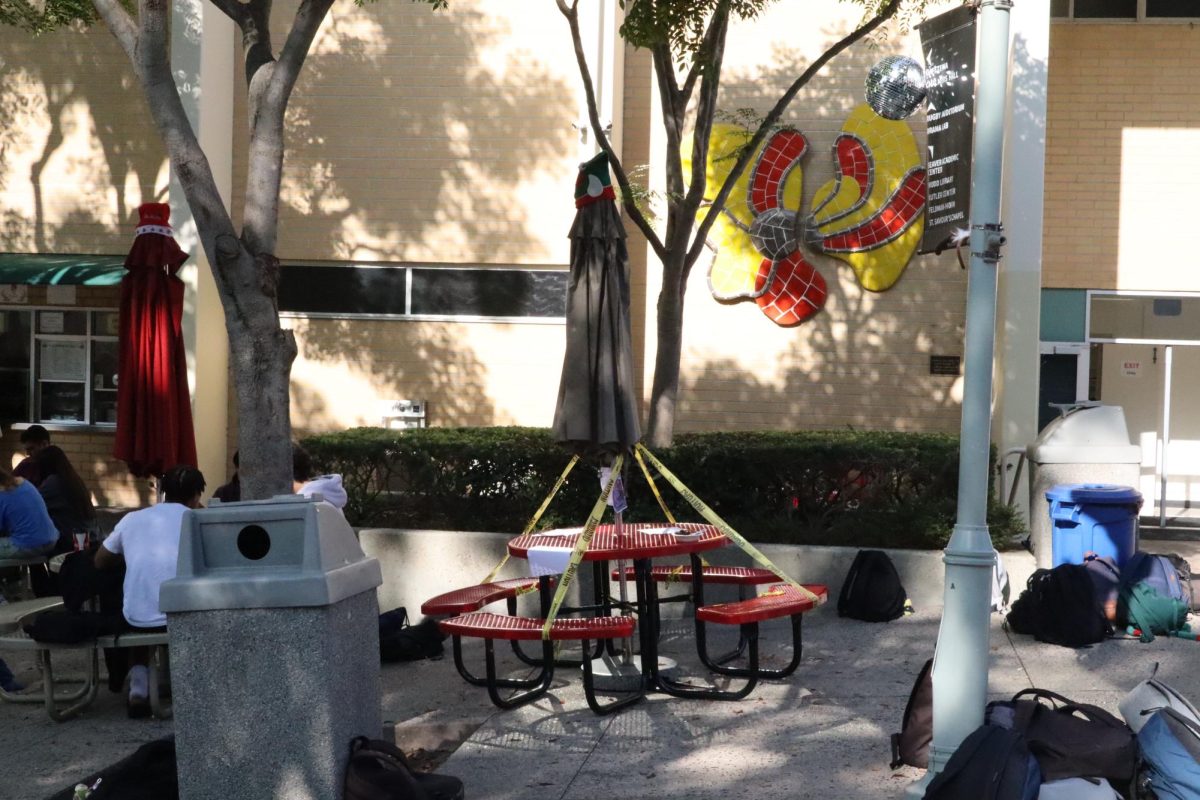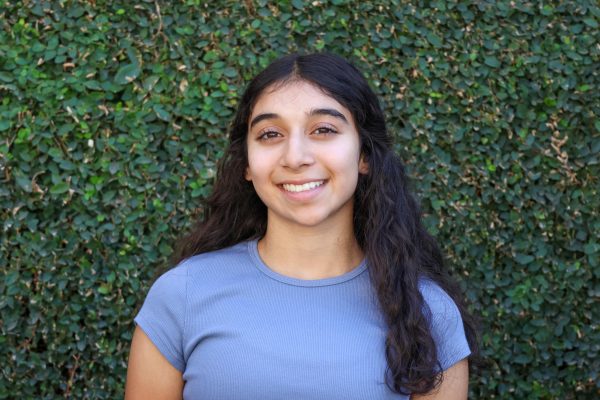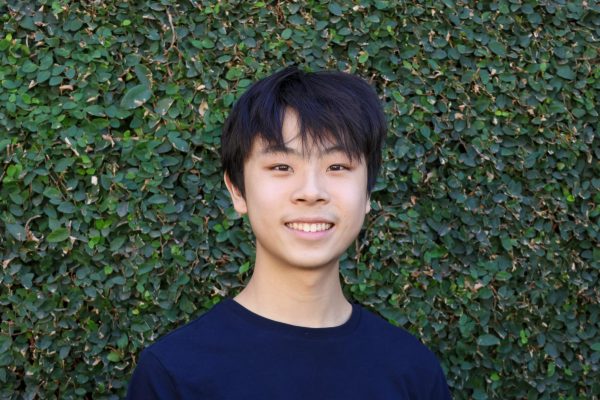With the holiday season approaching, Maylie Macias ’26 was excited for her friend group’s annual Secret Santa. She and her friends would each exchange holiday gifts anonymously, drawing random names for their gifts and keeping their identities a secret. However, after hearing about the price of gifts from previous years, Macias said her excitement turned into concern as she worried if she could afford a similar caliber of gifts. Macias said she decided not to participate in the Secret Santa because she knew she would not be able to afford something so expensive.
“I got intimidated and afraid that I wouldn’t be able to provide the same higher-end gifts that they were giving, so I asked my friend to take my name out of the draw,” Macias said.
Macias, who attends the school on financial aid, said she felt self-conscious about her financial situation. Feeling pressured, she said she decided not to participate at all.
“People were getting really expensive gifts for everyone, and I knew I couldn’t give that,” Macias said. “In middle school, I would always give little candy gifts to my friends, which would’ve been enough then, but my own insecurity about my socioeconomic status keeps me from participating now.”
Upper School Counselor Michelle Bracken said socioeconomic differences tend to become more obvious during the holidays.
“There are certain things that people talk about where somebody else has a very different experience,” Bracken said. “A vacation to an average person [could seem] very lavish, but to [other] people, it’s just what they do. It’s not wrong, but I think it’s hard to talk about.”
Prefect Elizabeth Johnstone ’24 receives financial aid and said that although she often anticipates conversations about vacations following winter break, she doesn’t see those interactions as too awkward.
“For my friends who are on financial aid, we always joke about how that’s the big dreaded vacation question,” Johnstone said. “When everyone comes back from break, it’s like, ‘Oh, where did you go over break?’ but it’s not that big of an issue. No one cares if you stay in or out.”
Macias said she doesn’t think these interactions are uncomfortable, though she sees differences in what she does over break compared to other students.
“I know people who went to Hawaii or London during Thanksgiving break,” Macias said. “I don’t think it affects me personally, although it is really surprising to see how much people are able to travel. Usually for vacations, I just visit my hometown in Mexico. ”
Dylan Wuo ’25 said the extravagance of students’ vacations generally do not bother him.
“I have many experiences with others going on fancier vacations than me, but I am okay with that,” Wuo said. “To me, vacations don’t have to be fancy in order for them to be memorable. However, holiday celebrations do seem to largely emphasize social status within our community. I love the celebrations, but I cannot help but think about social status when I participate in them.”
Edward Ward ’25 said although he goes on vacations often, he recognizes that oversharing about holiday extravagances on social media can create bitter feelings.
“I am fortunate enough to be able to travel, but I don’t use social media,” Ward said. “I think people certainly post to show off what they are doing or how cool they are for going somewhere over break, and that could lead to jealousy. The school can probably do something if a post is explicitly directed at someone, but there probably isn’t a way to regulate what people are posting altogether.”
In addition to vacations and holiday celebrations, Macias said she is conscious of her financial status in day-to-day activities.
“I can’t spend as much money as some of my friends,” Macias said. “I can’t go to Starbucks every day and stuff like that. I do see the differences [in wealth], and I do see how some people flaunt their socioeconomic status, although I don’t think it’s as much of a [problem] as it is in other private schools.”
Macias said she feels social pressure from her peers when seeing the kinds of clothes fellow students wear to school.
“There’s definitely a certain style or way that people dress that is considered the norm,” Macias said. “Levi’s Jeans cost like $100 which is crazy, and my family doesn’t buy jeans or clothes until it goes on sale at Target. So, in terms of fashion, I do see that bar being set.”
The school’s financial aid grants all books, required course materials, required sports equipment, computer stipend and a $1,300 account for the cafeteria and bookstore to students . Financial aid is need-based and determined by a family’s income and assets. The school supplies financial aid for about 20 percent of students, with most grants being an average of 75 percent of tuition, according to hw.com.
Director of Financial Aid Greg Gonzalez said the school does everything in its power to equalize what students have academically, even if it cannot do much in terms of how students feel about their financial situation.
“[The Financial Aid Office] works hard to make sure that every student on aid has access to whatever other Harvard-Westlake student has, [but] we can’t control the outside world.” Gonzalez said. “We can’t control how people feel about their own socioeconomic situation outside of our gates.”
Bracken said she has noticed a shift in the school environment as more and more people have begun to accept those of a lower socioeconomic status.
“I do feel like [financial aid] is stigmatized,” Bracken said. “I don’t think other people always understand financial aid or what it means, but I think friends are becoming more aware of different situations and trying to be more sensitive. There’s certainly people who aren’t self-aware enough to be able to do that, but most people have friends that try to make those kinds of accommodations.”
Johnstone said navigating social interactions regarding her financial situation have not been difficult and that she has not experienced prejudice from her peers .
“When it comes to students who are on financial aid, if you want to talk about it, you can talk about it, and if you don’t want to talk about it, you don’t have to talk about it,” Johnstone said. “I’ve been treated the same way by friends whom I told and friends whom I haven’t told.”
Wuo said though he senses stigma surrounding financial aid, he tries to view people as separate from their financial situations.
“I have ran into a few times in [where] financial aid was brought up in conversation, and some were hesitant to speak on their social status,” Wuo said. “This kind of uncertainty does seem to suggest an apparent stigma around financial aid. Even though some have revealed where they stand, this doesn’t really affect how I view them as people.”
Gonzalez said there can also be preconceived misconceptions against those who are not on financial aid.
“We had a student financial diversity discussion group a few years ago,” Gonzalez said. “The thing that came out of that group was that students who didn’t receive aid felt that bias against them in the outside world, like ‘Oh, you go to Harvard-Westlake, [so] you must be rich’ even if their parents were struggling to pay independent school tuition.”
Gonzalez said students at the school can find success, regardless of their financial situation.
“I’ve always admired our students for their open mindedness and their welcoming nature,” Gonzalez said. “ Here, in our awesome little bubble, work and performance are the equalizers. Maybe that’s an ideal, but I think it’s an ideal we reach pretty frequently. Everything here requires work, so I think that work and performance are ways to even [the] playing field.”
Macias said she is grateful that she was able to go to the Oxford Prep Experience, a summer program in England , through the school’s Financial Aid Office.
“I was able to apply and attend a summer abroad program in Oxford this summer with the full tuition and trip covered,” Macias said. “It was one of the best experiences I ever had. I got to travel abroad, meet people from around the globe and study two subjects that I am passionate about.”
Macias said though she appreciates the school’s efforts to create an equal playing field, the realities of the wide range of socioeconomic statuses are still prevalent.
“At Harvard-Westlake, there are so many opportunities, and I’m grateful for those opportunities , [but] it is still hard to be on financial aid here.” Macias said. “There are certain teachers or coaches who don’t exactly understand that it’s hard.”
Though she still struggles to navigate the socioeconomic differences among students at school, Macias said she tries to focus on the fact that she earned her spot at the school through hard work and merit.
“If you see yourself as separate [for] having financial aid, it alienates you from the community,” Macias said. “I try to look at it through a different perspective. I earned my spot at Harvard-Westlake, and somebody in that admissions room fought for me to have a seat and financial aid. I’m here despite the differences. I’m proud and feel like [being at the school] is worth it.”






























